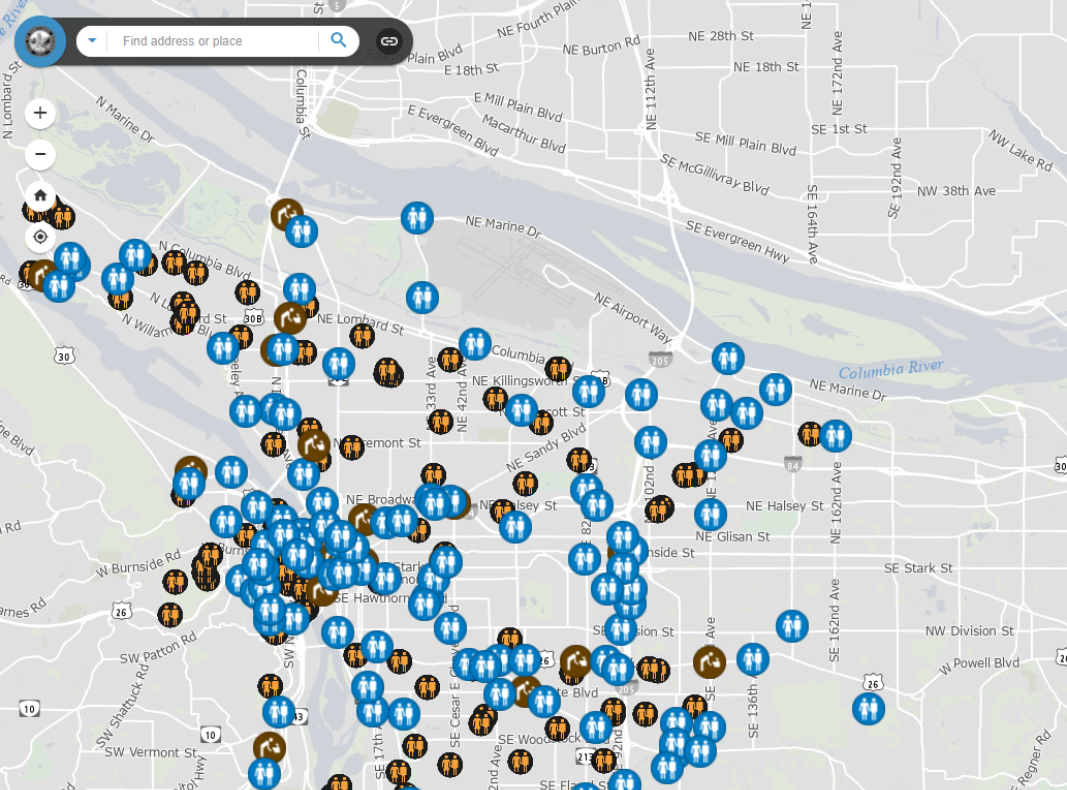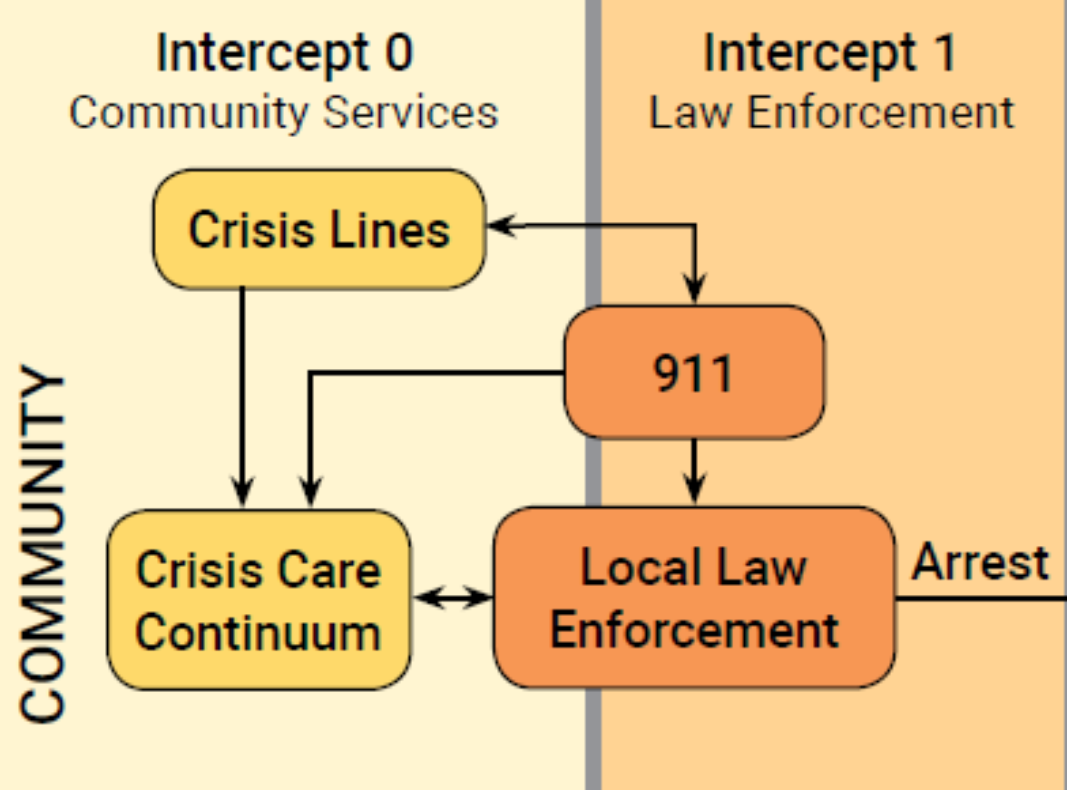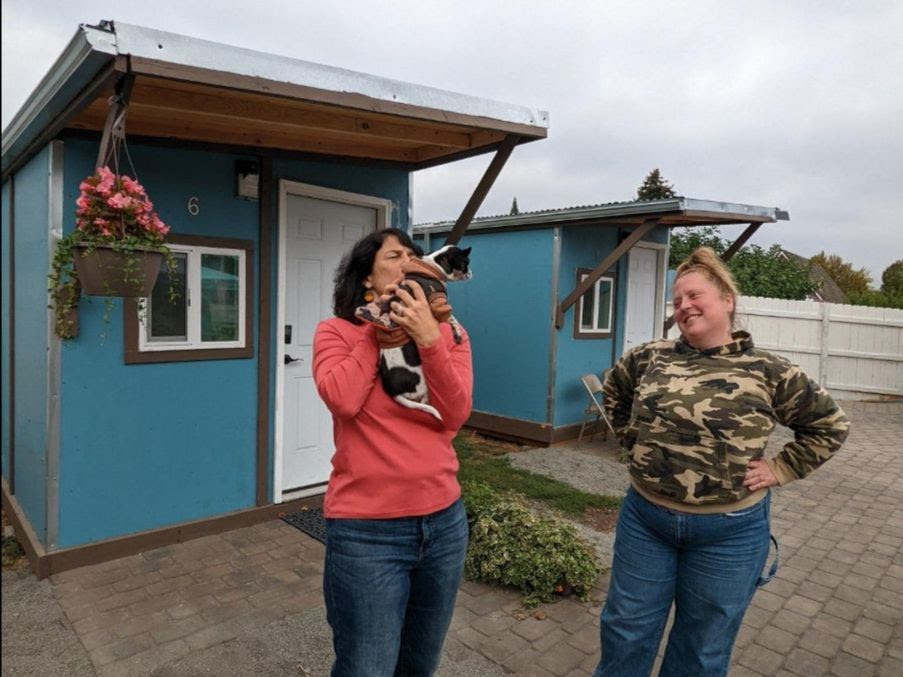Plans and Resources
The issues we’ve been facing in Portland and Multnomah County and Portland may be complicated, but the solutions are actually straightforward. This section provides access to comprehensive plans I created to address the seemingly intractable issues facing our region, along with the sources, reports, and background materials that support them.
I also share other resources and references you may find interesting as you begin to connect the dots and gain an understanding of not only the problems we face, but how, together, we can begin to solve them.

Frequent User Systems Engagement - FUSE - Report
The Frequent User Systems Engagement (FUSE) Report highlights how supportive housing can transform lives in Multnomah County by reducing jail bookings, homelessness, and emergency health service use. The analysis reveals that individuals experiencing chronic homelessness who receive stable housing with supportive services exhibit improved health outcomes and reduced system costs.

Hygiene Waste and Storage Analysis Report
In partnership with Portland State University’s Homelessness Research & Action Collaborative, Multnomah County and the City of Portland commissioned this report highlights critical gaps in access to bathrooms, showers, laundry, trash collection, and safe storage for personal belongings. It also identifies the health, safety, and dignity impacts of these unmet needs on individuals and the broader community.

Sequential Intercept Model (SIM) Report – Multnomah County 2019
Multnomah County has previously engaged in SIM workshops, beginning in 2010, to strengthen communication between systems, expand diversion options, improve housing flexibility, and enhance crisis response services. In September 2019, the County conducted another SIM Mapping workshop, this time focusing on Intercepts 0 and 1 mobile crisis outreach, co-response, law enforcement, and emergency services.

Animal Services Volunteer Report and Recommendations
The Animal Services Volunteer Report and Recommendations provides an in-depth look at the challenges faced within Multnomah County Animal Services (MCAS) as voiced directly by frontline volunteers. Compiled after extensive meetings with dedicated volunteers, the report highlights serious concerns about animal healthcare, adoption and euthanasia practices, safety standards, financial accountability, and volunteer treatment.

Approach to Homelessness in Multnomah County
Homelessness is the biggest crisis facing Multnomah County. Billions of dollars, and immeasurable amounts of time and energy spent on plans to “end homelessness”, meaningful goals and ways to achieve them have never been established. Until problems with the County’s approach to ending homelessness are clearly identified and directly addressed, the system will not succeed in ending homelessness.

Multco Behavioral Health Services Funding Analysis
A total of $608,017,824 was spent on behavioral health services in Multnomah County in SFY2019. These expenditures were made by nine different entities that administer the funding sources by managing the costs, utilization, and quality of behavioral health services. Exhibit 1 displays the funding sources for behavioral health in state fiscal year 2019. Medicaid funding, which is a mix of federal and state dollars, accounted for 82%.

Sharon Meieran’s Feedback on HRAP & IGA
Multnomah County Commissioner Sharon Meieran has issued a detailed critique of the Homelessness Response Action Plan (HRAP) and the related Intergovernmental Agreement (IGA) between Multnomah County and the City of Portland. Drawing on her background as a lawyer, emergency physician, direct service provider, and policymaker, she argues that the current plan is vague, jargon-heavy, and unlikely to deliver meaningful change.

Multco Mental Health System Analysis
In 2017, Multnomah County commissioned the Human Services Research Institute (HSRI) to conduct a comprehensive review of its publicly funded mental health system. The study focused on individuals of all ages who rely on public funds for mental health care, with the goal of providing a data-driven understanding of how well the system meets community needs and how resources are aligned. The vision was to ensure a 21st-century mental health system.

MICRO VILLAGE EXPANSION PROJECT (MVEP)
The Multnomah Village Evaluation Project (MVEP) is rooted in the voices and lived experiences of people directly impacted by houselessness. At its core, Multnomah Village Evaluation Project (MVEP) project gathered insights from 120 villagers and community members with lived or living experience of houselessness, alongside 34 village allies and 8 individuals with experience in shelters. Their perspectives shaped the foundation and direction of the work.
Analyze, Align, and Act: A Blueprint for Better Behavioral Health - Goal Matrix
Goal Matrix is based on recommendations offered in the 2018 Mental Health Systems Analysis conducted by the Human Services Research Institute (HSRI). The Goal Matrix is one step in a multi-phase systems change effort, focusing on Multnomah County but complementary to other efforts throughout the state and region.
Sharon's summary of Local Mental Health and Developmental Disability Services
Oregon law (ORS 430.610–430.634) establishes a clear framework for delivering accessible, coordinated, and community-based mental health and developmental disability services. The legislative policy emphasizes that services must be available to all individuals regardless of ability to pay, and delivered as cost-effectively as possible.
National Sobering Collaborative’s National Sobering Summit in Washington DC
The National Sobering Collaborative, founded in 2015, is dedicated to building alternatives to criminal justice and emergency department responses for individuals experiencing harmful substance use. Its mission is to support the expansion of sobering care services nationwide, ensuring safe, short-term, and accessible environments.
Email to: Chair Jessica Vega Pederson
On July 20, 2024, Commissioner Sharon Meieran sent a detailed letter to Chair Jessica Vega Pederson regarding Multnomah County’s implementation of HB 4002, which recriminalized possession of small amounts of hard drugs and allows counties to create deflection programs.
In her letter, Sharon expressed deep concern that the County’s chosen path a temporary deflection center would be costly, ineffective, and potentially harmful.
SUBSTANCE USE DISORDER CONTINUUM OF CARE
Leaders from the front line of the SUD continuum share their perspectives on what works, what doesn’t, and what policymakers should know as they consider investing hundreds of millions of dollars in building and maintaining an effective SUD system of care.
Behavioral health (Substance Use Disorder (SUD) and mental illness) is a crisis in our region and state. Fortunately, policymakers have recognized the need for commitment of substantial resources to address the crisis.
Shelters in Multnomah County
Shelters in Multnomah County – 2025 Overview
This report provides a comprehensive overview of shelters and alternative housing models across Multnomah County as of September 2025, categorizes more than a dozen types of shelter programs, including micro-villages, tiny home villages, Safe Rest Villages (SRVs), managed pod villages, Temporary Alternative Shelters (TAS), congregate shelters, family shelters, and transitional housing sites. This highlights the diversity of approaches, ranging from small to large-scale county-run programs.